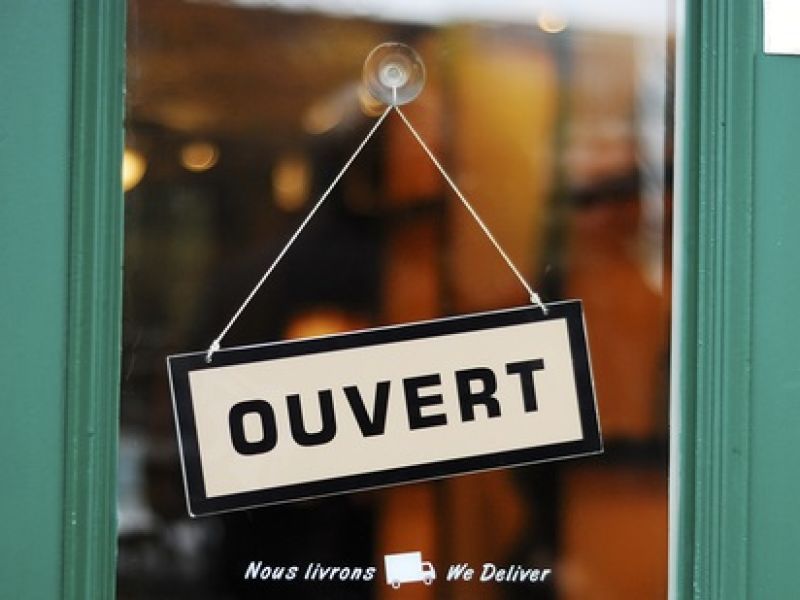Belgium is lucky location-wise. Nestled between three European financial behemoths and with direct routes to the Channel Tunnel and the North Sea, it provides easy access to European markets for Belgian entrepreneurs who want to expand their business.
So for Belgian business people who want to base their operations in another country to take advantage of tax breaks and new clientele, what are the best destinations for Belgian entrepreneurs?
France
Being one of its neighbours, and sharing a common language (around 40% of Belgians speak French) it would make sense for Belgian entrepreneurs to look to France for expansion first.
France has a well-developed legal and regulatory system broadly similar to that in other EU member states. There are only a few restrictions on setting up companies, except in certain areas such as banking and insurance, and there is no restriction on imports or capital from abroad.
Belgium and France share the same corporation tax rate (33%) so there’s no losses in terms of tax expenditure but the advantage to many business people is being able to add the word “Paris” to their letterhead if they choose to start a company in the capital or even just open a branch of their business.
The French government has been very keen to seek foreign investment over the last few years, not only to boost the French economy but also to rid themselves of the age-old image that France is laboring under layers of bureaucracy. Today, that couldn’t be further from the truth. The system for incorporating a company in France has now been streamlined so the process only takes a couple of weeks.
Related article: How to start a business in France in 8 steps
As well as being one of the strongest economies in the world, the startup scene in France is the go-to place for some of the most innovative minds in tech and science. And with Station F opening in June 2017 – an incredible 33,000 square metres of space for new businesses right in the heart of Paris along with startup programs and soon-to-be-built living space for entrepreneurs – France will be at the forefront of the world’s startup scene.
(For everything you need to know about how to open a business in France you can download our free guide by clicking HERE.)
Germany
The other neighbor of Belgium on the other side is Germany which is also a great place for entrepreneurs to set up business.
The country’s strong economic and political position and the fact it lays claim to the largest market, population and economy in the EU, means entrepreneurs with an eye on creating a solid, stable business structure are frequently looking to Germany to set up their business.
The German economy is largely built on small businesses and according to the Chamber of Commerce there are 3.72 million companies throughout the country, with 99.5% of them either small or mid-sized. The low corporation tax rate also seems like a tempting prospect but you need to be aware there are a number of other taxes which the German government levy on businesses – the municipal trade tax and solidarity surcharge – which means that when you add those charges to the corporate tax you end up paying around 33% tax (the same rate as Belgium and France).
But the German government offers a wide range of incentive programs, including loans and grants, depending on the nature of the company and its intended location. Some areas of Germany offer capital investment grants of up to 50% to SMEs so you’ll be well placed within this country if you’re thinking of starting small to test the market.
United Kingdom & Ireland
Despite the gloom over the Brexit vote, the UK is actually making huge efforts to make sure foreign entrepreneurs do not jump ship to their EU neighbours. The lowering of the corporation tax to just 19% is just one of the concessions the British government has made to ensure its reputation as being one of the top business destinations does not falter.
Britain has always been forward thinking when it comes to helping businesses set up shop on its shores – the smooth business incorporation system and the international banking facilities with the close proximity of one of the biggest financial districts in the world have always made the UK – and especially London - a go-to location for people with big business dreams.
Related article: Relocating to the UK: Home, Business & Family
With Article 50 now triggered and the Brexit negotiations in full swing, you can expect to see some even bigger incentives on offer for foreign businesses, as the British government tries to keep its ranking in international business circles. And all is not lost when it comes to trading with other EU countries. As Norway has demonstrated, it is still possible to trade perfectly well without being a full paid up member of the EU. And countries such as Switzerland have shown that trade agreements that are tailored for a particular country can work out pretty well (albeit rather convoluted to begin with) as opposed to having to compromise with the “one-size fits all” agreements that come with being an EU member.
But if you prefer to stick with the Euro (which will also save you having to change your money into sterling or back again) then the Republic of Ireland is also a great destination.
Ireland may be a small country but the so-called Celtic Tiger economy is fuelled by foreign investment, low corporate tax and a liberal approach to trade. As well as being English-speaking and with its close proximity to the UK, the Republic of Ireland has the advantage of still being in the EU.
Ireland is also perfectly positioned as a trade bridge between Europe and the United States and has a particularly beneficial tax environment on all trading income. Ireland’s government has streamlined its regulatory infrastructure into a single body - the Irish Financial Services Regulatory Authority. The overall regime is relatively relaxed and there are no general restrictions to foreign ownership. The good news is that capital and dividends can be freely repatriated and as Ireland has bilateral tax treaties with many countries, foreign investors find Ireland the perfect place to set up a business.
The Irish authorities, in coordination with the EU, also offer a broad range of incentives for international investors, including capital grants towards the cost of land, buildings, plant and equipment, employment and training grants to promote job creation and research and development grants.
So whatever your business in Belgium, you can find a great location for expansion over the borders in France and Germany, or over the waters in Ireland and the UK.
If you need more information on how to open a company in Europe, how to register a new business in France, how to start your business in Germany or open a company in the UK including opening a bank account or for immigration & visas please download our free guides below and either contact us directly by calling 0033 (0)1 53 57 49 10 or emailing us from our contact page and we’ll be happy to discuss your requirements.







